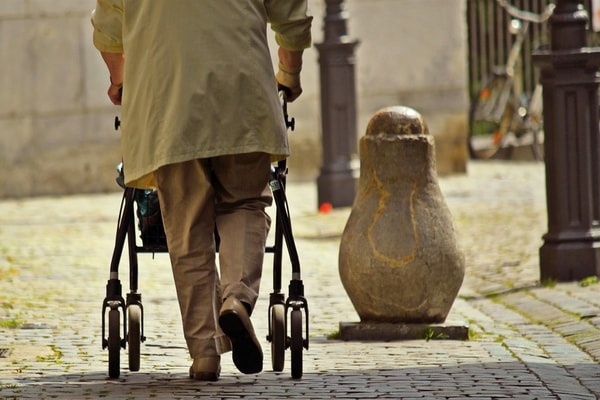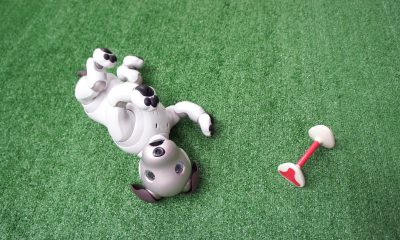In adults over seventy-one in the United States, the prevalence of dementia is estimated at 13.9%, a total of over 3.4 million individuals. The older someone gets, the higher their risk of developing any of the various causes of the syndrome of impaired memory and cognition known as “dementia.” Among people over 90, the prevalence of dementia is a staggering 37.4%.
The most common cause is Alzheimer’s disease, a progressive neurodegenerative disease affecting an estimated 2.4 million seniors in their seventies and above. However, dementia can also result from other causes like brain lesions caused by a stroke, Parkinson’s disease, Lewy body dementia, and other causes of brain damage.
Dementia causes many problems, and an increased risk of falling is among them. Falls are a leading cause of morbidity among the elderly, often resulting in serious injuries like broken hips. While dementia is far from the only risk factor for falls, it’s one of the most prevalent, and measures should be taken to help prevent falls in dementia patients.
Body and Brain: How Dementia Impairs Gait and Balance
Dementia and other neurological problems, like abnormal gaits associated with various nervous system disorders, are the biggest cause of falls. Walking isn’t just a matter of the musculoskeletal system. It’s a complex activity coordinated by the activity of numerous different areas of the brain, controlling both motor planning — the intent of carrying out an action — and the movements themselves.
Damage to any of these areas can impact gait. Damage to cognitive areas, like the frontal lobe, can also impair motor coordination, making it difficult to walk and balance without falling. Dementia is often associated with a class of symptoms called “motor apraxia.” Patients with gait apraxia have unusual difficulty coordinating limb movements — processes which the normal brain handles unconsciously and automatically in most cases. Moving from a sitting position to a standing position, or vice versa, becomes difficult, and when the person walks, they may place their feet in bizarre ways, crisscrossing their legs or walking with an unusually wide-based stance.

Along with gait apraxia, generalized cognitive decline can also impact a person’s ability to balance and walk without tripping and falling. Impairments of executive function — the set of cognitive functions that oversee attention, task switching, and metacognition — can make it difficult or impossible for a person to walk while focused on another activity, like having a conversation or focusing on a mental train of thought. This further raises the risk of a catastrophic fall.
Along with dementia itself, clinical depression — which is common among dementia patients — has also been shown to be a risk factor for falls. Psychological depression, which most people associated with emotional states, has very real effects on a person’s physical performance as well. Like dementia, depression is associated with physical changes in brain tissue, and can have far-reaching effects throughout the body and mind.
Preventing Falls in Elders With Dementia
Seniors suffering from dementia experience changes in cognition, poor memory, and neurological impairments that make it harder to walk normally and maintain their balance. As a result, they’re at a higher risk of falls, which often cause serious or even fatal injuries in elderly people who are already frail to begin with.
Safety measures in a home or community living setting, like handrails in bathrooms and on outdoor steps, can help prevent a senior from falling. If the person has gait abnormalities, they may need a walker or another assistive device. People with memory loss from dementia sometimes have trouble remembering instructions for self-care, and may need help from support staff or home health aids to walk safely.




